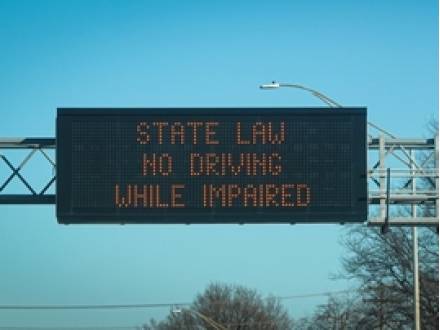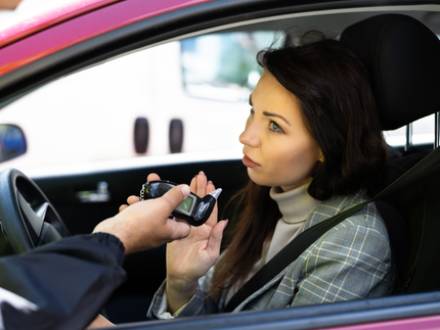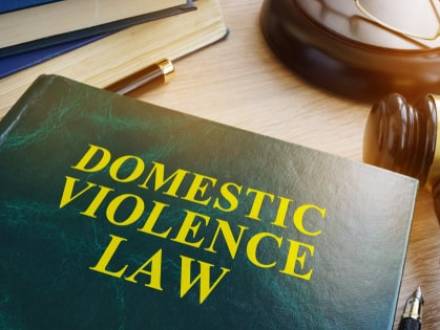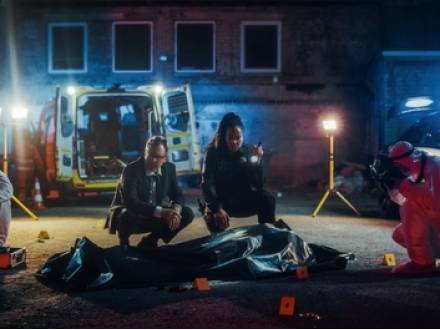Recent Blog Posts
Fighting a No-Contact or Protective Order in Texas
 Being served with a no-contact order or protective order can turn your life upside down instantly. These orders can force you out of your home. They can separate you from your children and damage your reputation. Despite the power they have to ruin lives, protective orders are issued quickly, often based on one-sided testimony without giving you a chance to tell your side of the story first.
Being served with a no-contact order or protective order can turn your life upside down instantly. These orders can force you out of your home. They can separate you from your children and damage your reputation. Despite the power they have to ruin lives, protective orders are issued quickly, often based on one-sided testimony without giving you a chance to tell your side of the story first.
If you have been served with a protective order in 2026, you need aggressive representation from a Cook County criminal defense attorney immediately. Whether the allegations are completely fabricated or blown out of proportion, you have the right to fight back with evidence and strong courtroom advocacy.
What Is a No-Contact or Protective Order in Illinois?
Illinois law allows alleged victims of domestic violence to request protective orders under the Illinois Domestic Violence Act, 750 ILCS 60/. These orders come in two main types.
What Is the Difference Between Burglary and Home Invasion?
 You hear these terms on the news all the time: burglary, home invasion, robbery, theft. They all sound serious, but what do they actually mean? If you are facing charges for any of these crimes, understanding the difference between them matters because the penalties are wildly different. You may be facing charges of several of them at once.
You hear these terms on the news all the time: burglary, home invasion, robbery, theft. They all sound serious, but what do they actually mean? If you are facing charges for any of these crimes, understanding the difference between them matters because the penalties are wildly different. You may be facing charges of several of them at once.
Our Chicago criminal defense attorneys can help you build the strongest possible defense to 2026 criminal charges. In a time when even the Department of Justice is drawing attention to Chicago’s rising property and violent crime rates, prosecutors are trying to make a point and put people in jail. You need a good attorney on your side. Call Luisi Legal Group at 773-276-5541 for a free consultation.
Can I Go to Jail for Domestic Violence Just From an Accusation?
 If someone has accused you of domestic violence in 2025, you are probably wondering if a simple accusation is enough to put you behind bars. The short answer is yes; you can be arrested and jailed based on an accusation alone. Police do not need proof beyond a reasonable doubt to arrest you. They only need probable cause, which is a much lower standard.
If someone has accused you of domestic violence in 2025, you are probably wondering if a simple accusation is enough to put you behind bars. The short answer is yes; you can be arrested and jailed based on an accusation alone. Police do not need proof beyond a reasonable doubt to arrest you. They only need probable cause, which is a much lower standard.
However, that does not mean that you will be successfully prosecuted or that you cannot fight an order of protection against you. Our Chicago domestic violence defense attorney works for those accused of domestic violence. We fight to protect your good name and reputation. Please note that we do not represent victims of domestic violence.
What Happens After Someone Accuses You of Domestic Violence?
What Is Considered Drug Manufacturing Under Illinois Law?
 Illinois prosecutors take drug manufacturing charges very seriously. These cases often involve claims that someone created or helped create illegal drugs for sale or distribution. While many people imagine drug manufacturing as a large meth lab, the law covers much more. Even small-scale involvement in producing or preparing drugs can lead to harsh penalties.
Illinois prosecutors take drug manufacturing charges very seriously. These cases often involve claims that someone created or helped create illegal drugs for sale or distribution. While many people imagine drug manufacturing as a large meth lab, the law covers much more. Even small-scale involvement in producing or preparing drugs can lead to harsh penalties.
If you are accused of manufacturing drugs, an experienced Chicago, IL drug defense attorney can help you understand your options and protect your rights.
Understanding Drug Manufacturing Under Illinois Law
Under the Illinois Controlled Substances Act (720 ILCS 570/102), drug manufacturing includes any activity involved in making or preparing controlled substances. This can mean mixing or producing drugs, processing or packaging them, or labeling them for sale. Even helping someone else with part of the process may count as manufacturing.
Can My History as a Victim Impact My Sentence?
 When someone is convicted of a crime, the judge has to decide what the punishment should be. While Illinois has ranges of penalties for each offense, judges have discretion within those ranges. They can consider aggravating factors (reasons to impose a harsher sentence) and mitigating factors (reasons for leniency).
When someone is convicted of a crime, the judge has to decide what the punishment should be. While Illinois has ranges of penalties for each offense, judges have discretion within those ranges. They can consider aggravating factors (reasons to impose a harsher sentence) and mitigating factors (reasons for leniency).
Sometimes, judges look at whether a defendant has been a victim of violence, abuse, or trauma in the past. If you are facing criminal charges, talk to a qualified Chicago criminal defense lawyer about whether your history can impact your sentence.
How Does Sentencing Work in Illinois?
Under Illinois law, courts look at many different factors when sentencing someone. Aggravating factors that can result in a more severe sentence can include whether the crime involved a weapon or caused serious harm. Mitigating factors are reasons a judge may lower your sentence. These can include whether you were provoked, whether you are likely to break the law again, or whether your past experiences help explain what happened.
What Is the Difference Between DUI and Aggravated DUI in Illinois?
 Illinois law treats driving under the influence (DUI) as a serious offense even in the most clear-cut cases, but certain circumstances can elevate a DUI to an aggravated DUI, a much more severe charge. Understanding the difference is important because the penalties and long-term consequences vary significantly. If you have been charged with either offense, you should speak with a Cook County, IL DUI defense attorney as soon as possible to begin building a strong case that protects your rights.
Illinois law treats driving under the influence (DUI) as a serious offense even in the most clear-cut cases, but certain circumstances can elevate a DUI to an aggravated DUI, a much more severe charge. Understanding the difference is important because the penalties and long-term consequences vary significantly. If you have been charged with either offense, you should speak with a Cook County, IL DUI defense attorney as soon as possible to begin building a strong case that protects your rights.
What Is a Standard DUI in Illinois?
Under Illinois’s 625 ILCS 5/11-501, you commit DUI if you operate a vehicle with a blood alcohol concentration (BAC) of 0.08 or higher, or while under the influence of alcohol, drugs, or other substances that cause you to be incapable of safely driving.
Can I Still Be Charged With DUI if I Refused the Breathalyzer?
 If you refused the breathalyzer test after being pulled over on suspicion of drunk driving, you may wonder whether that decision will prevent driving under the influence (DUI) charges. Unfortunately, the answer is no. Prosecutors can still charge you with DUI even if you decline chemical testing.
If you refused the breathalyzer test after being pulled over on suspicion of drunk driving, you may wonder whether that decision will prevent driving under the influence (DUI) charges. Unfortunately, the answer is no. Prosecutors can still charge you with DUI even if you decline chemical testing.
As of July 2025, Illinois law allows DUI cases to move forward based on officer observations, field sobriety tests, and other evidence, even without a breath test result. If you were arrested and refused the breathalyzer, you still need a strong legal defense to protect your rights and driving privileges. Speak with a Cook County, IL criminal defense lawyer to understand your options.
How Can I Be Charged With DUI Without a BAC Result?
In Illinois, you can be charged with DUI in two main ways. The first is by showing that your blood alcohol concentration (BAC) was 0.08 percent or more, which typically requires a breath, blood, or urine test. But the second way does not rely on chemical testing at all. Under 625 ILCS 5/11-501(a)(2), you can also be charged with DUI if you were under the influence of alcohol to the degree that it affected your ability to drive safely.
Drop in Chicago Auto Thefts – Except for High-End Vehicles
 Violent crimes – except for criminal sexual assault and human trafficking – dropped significantly last year across Chicago. There have also been fewer gun violence victims and fewer victims of motor vehicle theft overall (a drop of 27 percent in 2024 over 2023). The trend of fewer auto thefts has continued into 2025, and as of May 4, car thefts in the city were down 35 percent.
Violent crimes – except for criminal sexual assault and human trafficking – dropped significantly last year across Chicago. There have also been fewer gun violence victims and fewer victims of motor vehicle theft overall (a drop of 27 percent in 2024 over 2023). The trend of fewer auto thefts has continued into 2025, and as of May 4, car thefts in the city were down 35 percent.
Police attribute a significant portion of the drop in car thefts to license plate reader technology and the new Chicago Police helicopters, while noting an increase in the theft of higher-end vehicles. More than 400 luxury vehicles were stolen in 2024. Police say they have also seen an increase in the number of Jeeps stolen (up 28 percent in 2024 over 2023). Not only are sport utility Jeeps being stolen at a higher rate, but they are also being used to ram storefronts in other thefts and to steal ATMs.
Karina’s Law Goes into Effect on Mother’s Day in Illinois
 On Mother’s Day this year, a new law to protect survivors of domestic violence went into effect. Karina’s Law was named after Karina Gonzalez, a mother killed during a domestic violence incident in Little Village. Karina’s son admits it is hard to face the reality that he will never see his mother again or hear her laugh. Yet if the new law saves even one person, he believes his mother will have changed lives.
On Mother’s Day this year, a new law to protect survivors of domestic violence went into effect. Karina’s Law was named after Karina Gonzalez, a mother killed during a domestic violence incident in Little Village. Karina’s son admits it is hard to face the reality that he will never see his mother again or hear her laugh. Yet if the new law saves even one person, he believes his mother will have changed lives.
Karina and her daughter were both allegedly shot and killed by Karina’s husband in 2023. Karina’s Law requires that firearms be removed from the home of an accused domestic abuser if the alleged victim is granted an order of protection by the court. The law states that guns must be removed from the home of an accused abuser within four days of when the order of protection is issued.
Could Self-Defense Significantly Reduce Homicide Charges?
 Recently, after a 24-year-old shot a 61-year-old doorman in Chicago, the circumstances surrounding the shooting resulted in the younger man only being charged with unlawful use of a weapon. By all accounts, the doorman was remembered by all who knew him as someone who helped everyone he knew.
Recently, after a 24-year-old shot a 61-year-old doorman in Chicago, the circumstances surrounding the shooting resulted in the younger man only being charged with unlawful use of a weapon. By all accounts, the doorman was remembered by all who knew him as someone who helped everyone he knew.
Reportedly, when the altercation occurred, the doorman was heading home from work and was on a pedestrian walking bridge near the CTA Blue Line platform at the intersection of South Peoria and Van Buren Street. A verbal disagreement between the two men escalated into an exchange of gunfire, with the older man pulling his gun first and shooting at the younger man, who then fired his own gun in self-defense.
The older man was shot in the head and subsequently died at the hospital. The CTA worker was questioned by police, then released, and charged with unlawful use of a weapon. While those who knew the older man are finding it difficult to believe he would use a weapon in an altercation, video of the incident supports the younger man’s claim of self-defense.







